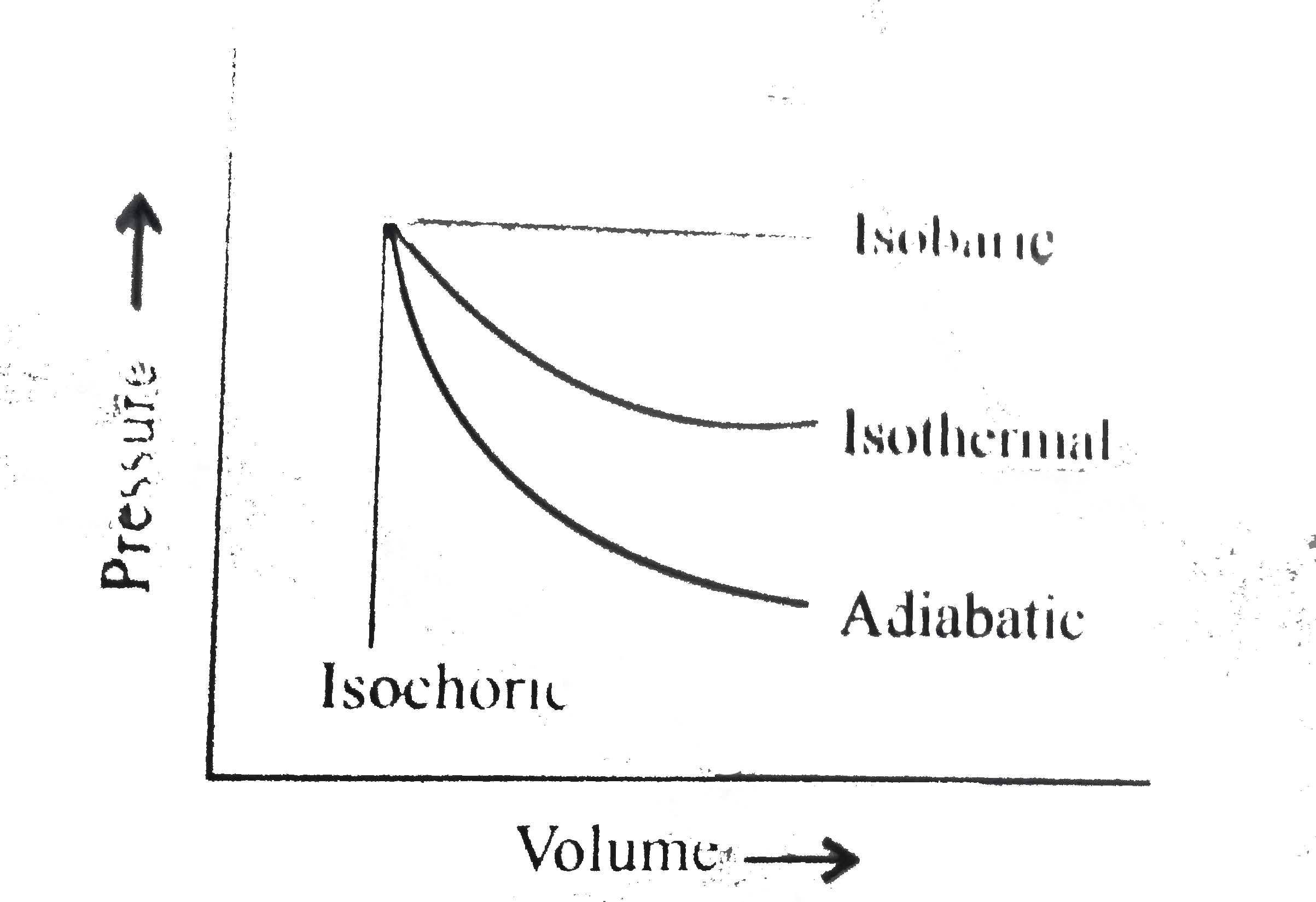Calculate Q and w for the isothermal reversible expansion of one mole an ideal gas from an initial pressure of 1.0 bar to a final pressure of 0.1 bar at a constant temperature of 273 K respectively.
5.22kJ, -5.22 kJ
−5.22kJ,5.22kJ
27.3 kJ, -27.3 kJ
−27.3kJ,27.3kJ
The correct Answer is:A
In isothermal process change in internal energy is 0, so q=−w
Topper's Solved these Questions
- BOOK - NARAYNACHAPTER - THERMODYNAMICSEXERCISE - Level-VI150videos
THERMODYNAMICS
- BOOK - NARAYNACHAPTER - THERMODYNAMICSEXERCISE - Passages13videos
THERMODYNAMICS
- BOOK - NARAYNACHAPTER - THERMODYNAMICSEXERCISE - Level-II (H.W)24videos
THERMODYNAMICS
- BOOK - NARAYNACHAPTER - STRUCTURE OF ATOMEXERCISE - EXERCISE - IV EXEMPLAR PROBLEMS24videos
STRUCTURE OF ATOM
Similar Questions
Calculateq,W,ΔU and ΔH for the isothermal reversible expansion of one mole of an ideal gas from an initial pressure of 1.0 bar to a final pressure of 0.1 bar at a constant temperature of 273K.
View SolutionCalculate q,W,ΔU and ΔH for the isothermal reversible expansion of one mole of an ideal gas from an initial pressure of 1.0¯ to a final pressure of 0.1¯ at a constant temperature of 273K.
View Solution
Knowledge Check
- Question 1 - Select One
The pressure-volume of varies thermodynamic process is shown in graphs:

Work is the mole of transference of energy. It has been observed that reversible work done by the system is the maximum obtainable work.
wrev>wirr
The works of isothermal and adiabatic processes are different from each other.
wisothermal reversible=2.303nRTlog10(V2V1)
=2.303nRTlog10(P2P1)
wadiabatic reversible=CV(T1−T2)
The q value and work done in isothermal reversible expansion of one mole of an ideal gas from initial pressure of 1 bar to final pressure of 0.1 bar at constant temperature 273K are:A5.22kJ,−5.22kJB+6.22kJ,6.22kJC5.22J,5.22JD−6.22J,−6.22J - Question 2 - Select One
1 mole of an ideal gas is expanded from an initial pressure of 1 bar to final pressure of 0.1 bar at constant temperature of 273 K. Predict which of the following is not true?
AΔE = 0BΔH = 0CPV is constantDΔS←0
Calculate q,w, and ΔU for the isothermal reversible expansion of one mole of an ideal gas from an initial pressure of 2.0 bar to a final pressure of 0.2 bar at a constant temperature of 273K.
View SolutionCalculate q,W,ΔU and ΔH for the isothermal reversible expansion of one mole of an ideal gas from an initial pressure of 1.0 bar to a final pressure of 0.1 bar at a constant temperature of 273K.
View SolutionCalculateq,W,ΔU and ΔH for the isothermal reversible expansion of one mole of an ideal gas from an initial pressure of 1.0 bar to a final pressure of 0.1 bar at a constant temperature of 273K.
View SolutionCalculate Q,W,ΔE and ΔH for the isothermal reversible expansion of 1 mole of an ideal gas from initial pressure of 1.0 bar to final pressure of 0.1bar at constant temperature of 273K.
View SolutionCalculate q,w,ΔU, and ΔH for this isothermal reversible expansion of 1mole of an ideal gas from an initial pressure of 10.0 bar to final pressure of 100bar at a constant pressure of 273K.
View SolutionCalculate the ΔH for the isothermal reversible expansion of 1 mole of an ideal gas from initial pressure of 0.1¯ at a constant temperature at 273K.
View Solution

